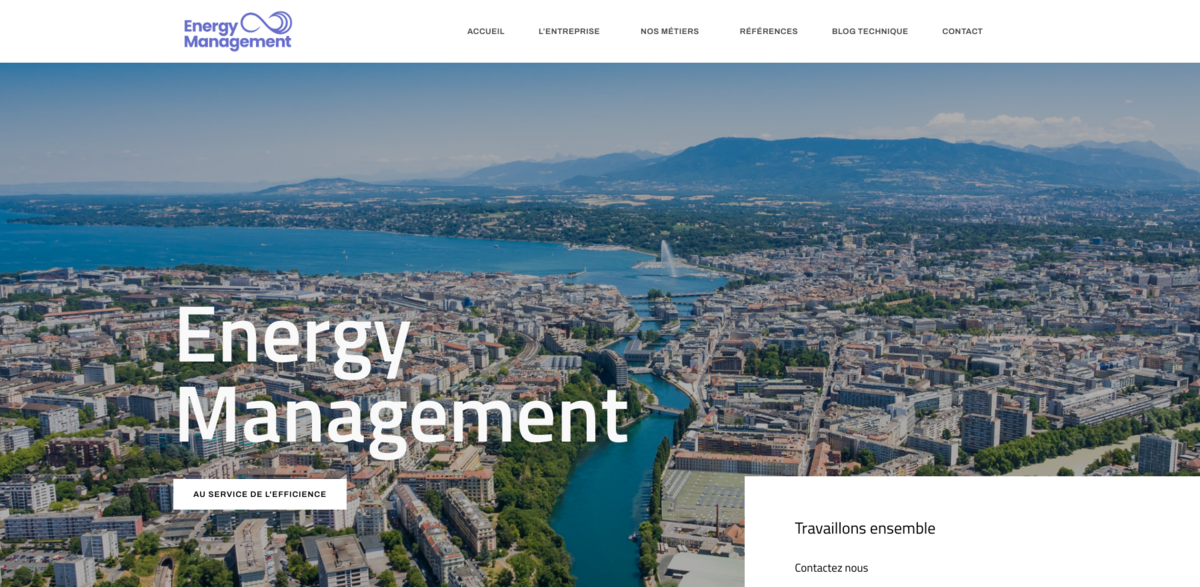What Energy Management Is All About
Energy Management is an engineering office that’s been specializing in energy engineering since 1969. Their team of engineers and technicians is dedicated every day to delivering top-notch services. They focus on efficiency, sustainability, and quality, making sure every project they touch is handled with responsibility and respect. It’s not just about energy — it’s about committing to a responsible future.
Main Benefits and Key Figures
Here’s a quick snapshot of what Energy Management brings to the table:
- 0 years of experience — decades of expertise in energy engineering.
- 0 analyzed meters continuously — constant monitoring to optimize energy use.
- 0 m² of energy monitoring surfaces — covering vast areas to ensure efficiency.
- 0 MW of heating and cooling power installed — powerful systems supporting sustainable environments.
Fields of Work That Make a Difference
Their expertise spans a wide range of building techniques, including HVAC engineering, project management assistance, and Building Information Modeling (BIM). They’re all about energy efficiency and sustainability, focusing on sustainable construction, building physics, energy monitoring, and building automation. Basically, they cover everything needed to create smarter, greener buildings.
Serving Diverse Sectors with Tailored Solutions
Energy Management supports clients across several main sectors. For large buildings like commercial spaces, office complexes, and convention centers, they push for energy sobriety in the tertiary sector. Public buildings such as hospitals, schools, and courts benefit from infrastructure modernization and optimized energy expenses. And in industry, they work with heavy manufacturing and large consumers who are keen on decarbonization for a sustainable future.
Acting Sustainably: The Core Elements
When it comes to sustainable construction in Switzerland, Energy Management highlights four main pillars:
- Energy efficiency: Cutting down energy consumption, especially for heating and electricity, while favoring renewable sources.
- Choice of materials: Using recyclable, local materials with low environmental impact, designed for longevity.
- Water and resource management: Collecting rainwater, reducing water use, and integrating recycling and reuse systems.
- Health and comfort: Creating healthy indoor environments with good air quality, acoustic insulation, and natural light optimization.
Project Impact on Sustainable Development Goals (SDGs)
- SDG 7: Affordable and Clean Energy — promoting energy efficiency and renewable sources.
- SDG 9: Industry, Innovation, and Infrastructure — modernizing buildings and industrial processes.
- SDG 11: Sustainable Cities and Communities — supporting sustainable construction and urban development.
- SDG 12: Responsible Consumption and Production — focusing on resource management and sustainable materials.
- SDG 13: Climate Action — reducing CO₂ emissions and promoting decarbonization.
Insights from Their Articles
Energy Management shares valuable knowledge through their articles, covering topics like indoor air quality and CO₂ regulations, commissioning as a quality guarantee, energy trends for 2025 in Switzerland’s building sector, and technical levers for energy optimization in industry. They also discuss the SIA 390/1 standard for carbon balance evaluation and present case studies on indoor air quality in office buildings. These insights reflect their commitment to advancing energy engineering and sustainability.


















